Are you unknowingly exposing yourself to toxic chemicals while trying to sleep better? Traditional nasal strips often contain PFAs (per- and polyfluoroalkyl substances)—harmful chemicals that have been linked to serious health concerns. Let’s dive into why this matters and how Clean Strips provide a safer alternative.
What Are PFAs, and Why Are They Harmful?
PFAs are a group of synthetic chemicals that don’t break down in the body, accumulating over time and leading to potential health risks such as:
-
Hormone disruption
-
Weakened immune system
-
Increased cancer risk
How PFAs in Nasal Strips Can Impact Your Health
Many conventional nasal strips use PFAs to enhance adhesion, but this means direct skin exposure every night. Studies have shown that PFAs can absorb into the bloodstream, contributing to long-term toxicity.
Signs You Might Be Exposed to PFAs in Your Daily Life
PFAs are not just in nasal strips; they’re found in many everyday products, often without consumers realizing their exposure. Here are some common sources of PFAs contamination:
-
Non-stick cookware (Teflon-coated pans and bakeware) – PFAs make these items resistant to stains and sticking, but they can release toxic fumes when heated.
-
Waterproof fabrics (rain jackets, outdoor gear, and stain-resistant clothing) – Many waterproof or stain-resistant coatings contain PFAs that can rub off on the skin.
-
Fast food packaging (burger wrappers, microwave popcorn bags, and pizza boxes) – PFAs prevent grease absorption but can leach into your food.
-
Household cleaning products (stain removers, water-resistant sprays, and polishes) – Many cleaning products contain PFAs, which can linger on surfaces and in the air.
-
Drinking water contamination – Some municipal water supplies have been found to contain traces of PFAs due to industrial pollution.
-
Cosmetics and personal care products (foundation, waterproof mascara, and long-lasting lipsticks) – PFAs are used to increase product longevity and water resistance but can be absorbed through the skin.
Health Symptoms Linked to PFAs Exposure
Because PFAs accumulate in the body over time, they can contribute to various health issues, including:
-
Hormonal imbalances – Disruptions in thyroid function and reproductive health.
-
Weakened immune function – Increased susceptibility to infections and illnesses.
-
Chronic fatigue and brain fog – PFAs have been linked to reduced cognitive function and energy levels.
-
Skin irritation and sensitivities – Long-term exposure may trigger eczema or allergic reactions.
-
Increased cancer risk – Studies suggest links between PFAs exposure and certain types of cancer, including kidney and testicular cancer.
If you’re using standard nasal strips, cookware, or personal care products that contain PFAs, it’s time to switch to a healthier, non-toxic option. PFAs are not just in nasal strips; they’re found in:
-
Non-stick cookware
-
Waterproof fabrics
-
Fast food packaging
If you’re using standard nasal strips, it’s time to switch to a healthier, non-toxic option.
Clean Strips: The Only 100% PFAs-Free Nasal Strips on the Market
-
Made from natural bamboo materials
-
No harmful adhesives or toxic chemicals
-
Gentle on sensitive skin
Ditch the toxins. Breathe clean. Sleep better.


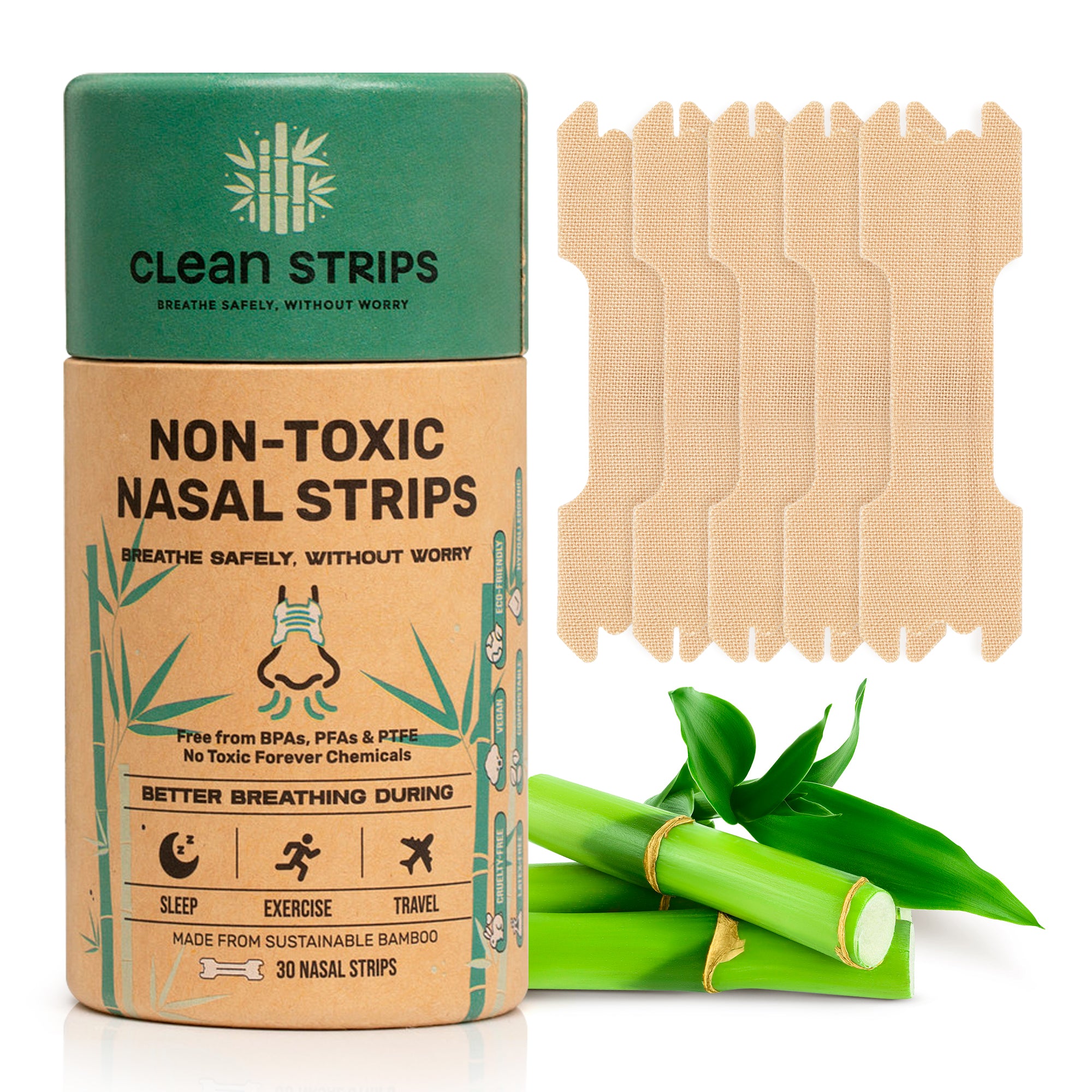
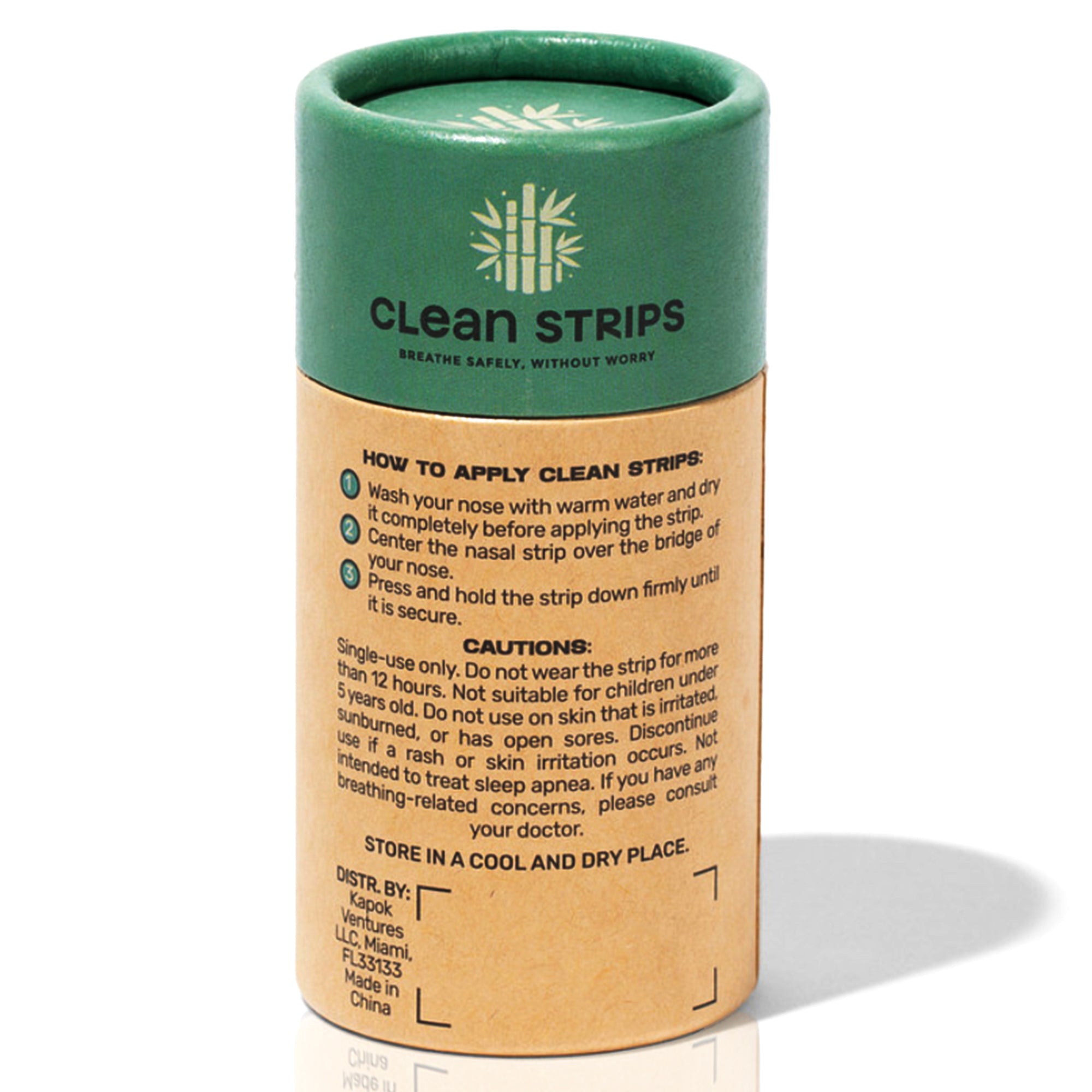
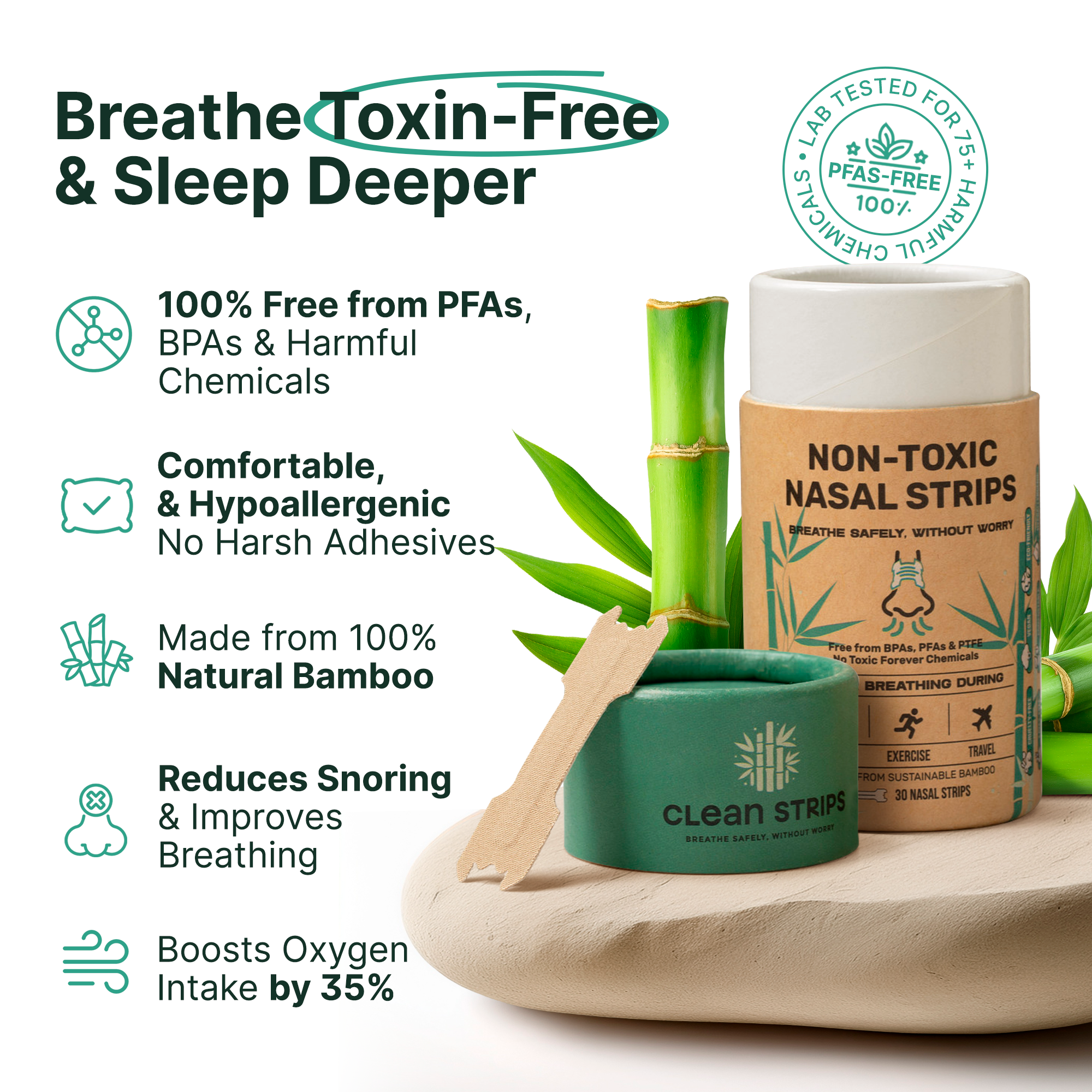

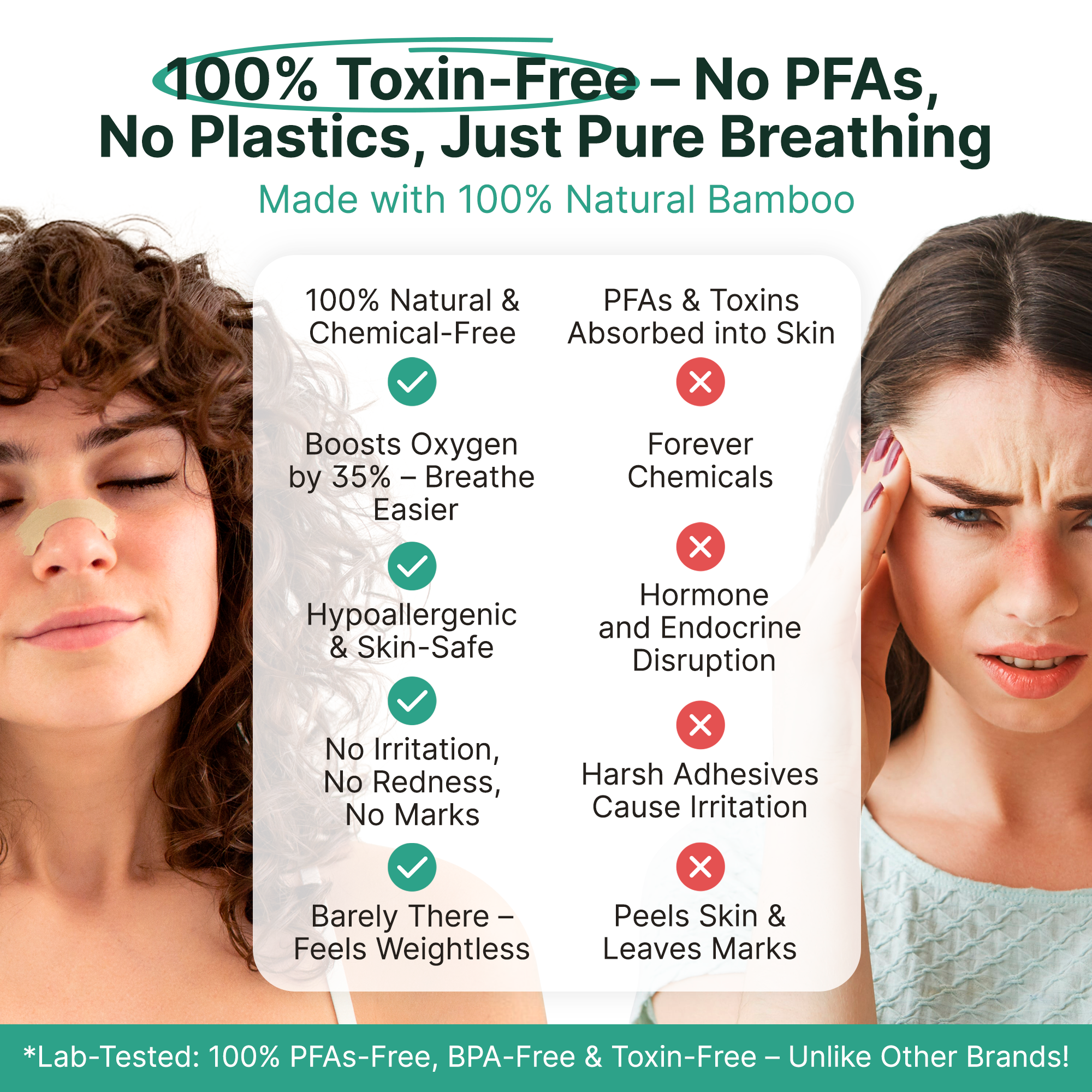


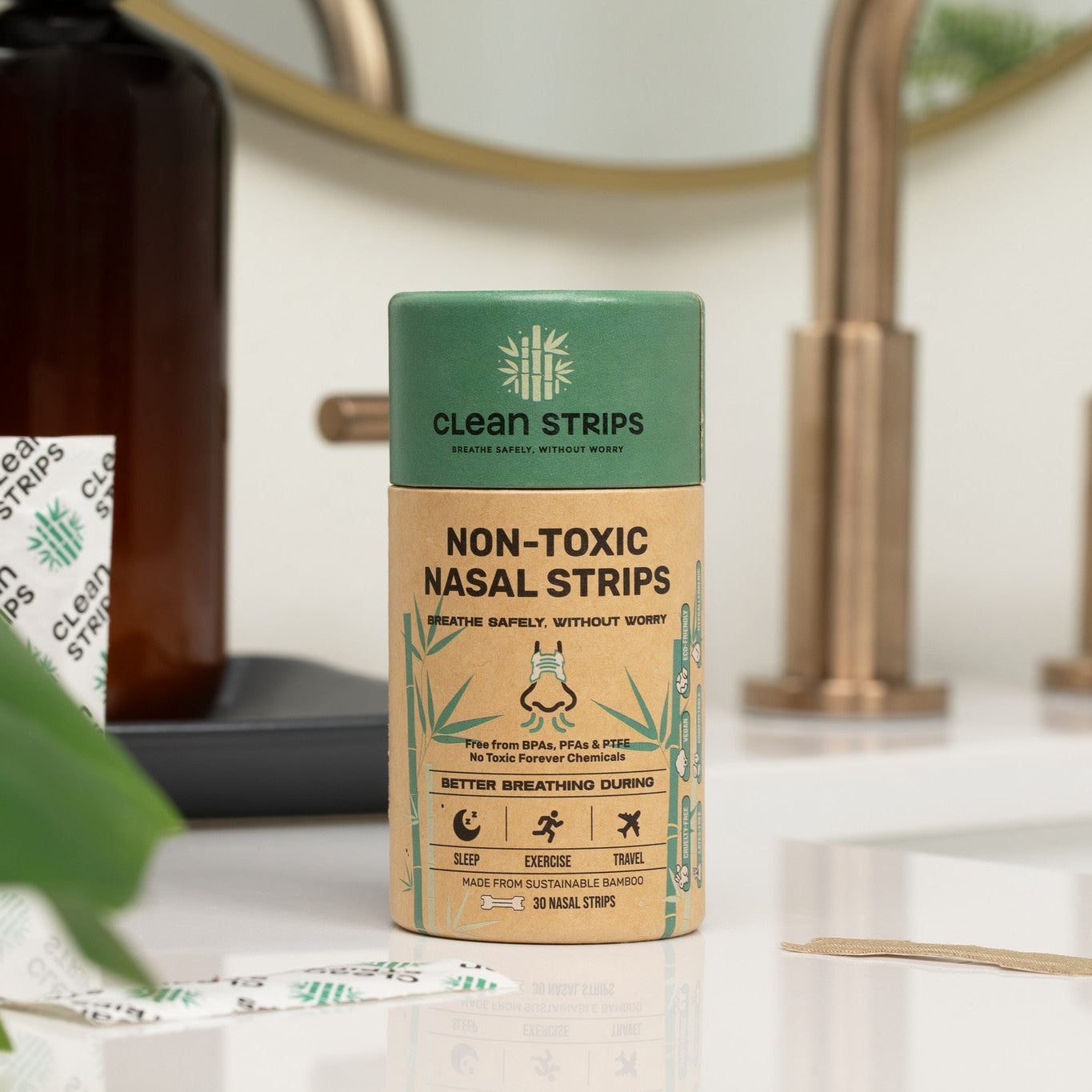



Share:
The Hidden Dangers Lurking in Your Bandages – and How Clean Strips Offers a Safer Alternative
How Nasal Strips Can Help You Breathe Better and Sleep Deeper: A Game-Changer for Snorers and Mouth Breathers